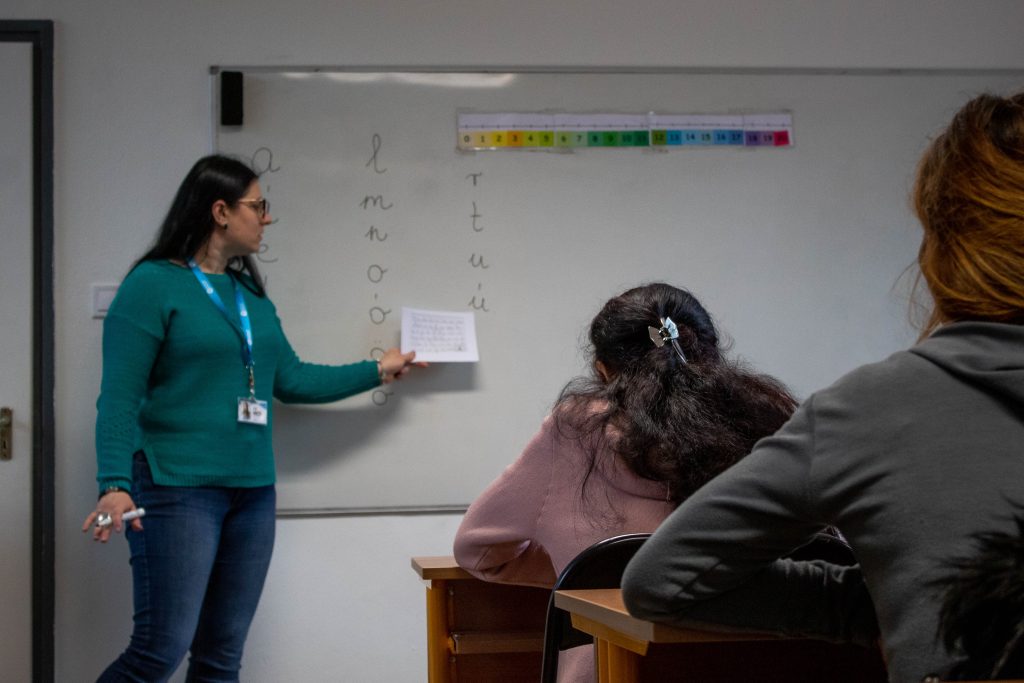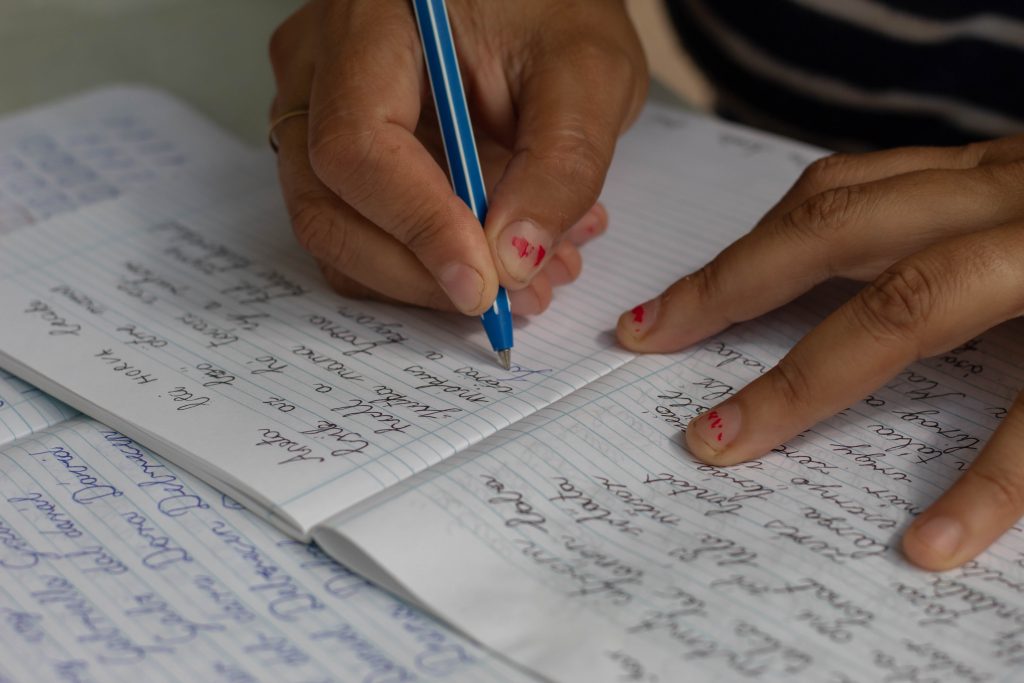We now have to make up for a 25-year delay
2024-01-17
Nowadays, writing and reading are considered basic skills, without which you can no longer get along in life. Unfortunately, however, there are people who did not have the opportunity to learn these vital skills as children. The Dorcas Ministries, in its Refugee Center for Transcarpathian refugees, provides opportunities for development not only for children, but also for adults.
Krisztina, in addition to her work as a house coordinator, also teaches reading and writing to refugee women. He told us about adult education.
When did you start teaching mothers to read and write?
"I started teaching women in April this year. There had already been a similar attempt by another employee, but he was unable to continue the work, and I did not want to let this initiative go to waste. I feel that there is a huge need to educate adults as well. During the first lessons, 11-12 people came, but over time they dropped out. Many people moved away, there were also those who gave up, and unfortunately there was a mother who passed away."
"It really doesn't matter how many of us are in a group. If a mother comes to the class, I will still keep the education for her and take care of her."
How is a lesson going? What experiences do you have?
„Heti két alkalmat tartunk. Az első órákon a ceruza és toll fogását is gyakoroltuk, hiszen a finommotorika nem alakult ki még náluk. Utána a betűk formázását gyakoroltuk. Egyelőre az írásra fókuszálunk. 25 év lemaradást kell pótolnunk, ami nem megy olyan gyorsan.”
"Those who stayed in the group, on the other hand, are very clever! They learned to write on the line and connect the letters together. In just a few months, this is an outstanding achievement. Three mothers have already learned to write here."
"These women were taken to work by their parents when they were children, so they did not go to school. By now, they also realize that reading and writing skills are essential.
At the end of the school year, in addition to the children, mothers were also mentioned for their achievements. I could see from them that they liked the recognition. It was a small thing, but they were proud of their achievements. This is mainly their merit, since if they didn't practice writing at home, they wouldn't have learned to write."
In addition to Krisztina, we also asked the most diligent students how they feel in class. One of the mothers attended the classes from the very beginning and proudly told me how much she had improved during this time.
How well could you read and write before you started the lessons?
"I started school here barely knowing a few letters. I could only write my name, and that too in Ukrainian. I only studied in Ukraine until the fourth grade. Our family situation was difficult, so even when I was still at school, I was often absent. And I couldn't read at all, so finding my way around here in Debrecen was a problem, I had to ask people where it was."
How do you feel you have improved the most?
"I already know all the Hungarian letters and have learned to write in Hungarian continuously. And thanks to practice, the writing gets better and better. I still need to practice reading, I can spell the words, but it is still more difficult for me to put them together in my head, in which case my grand daughter helps.
I tried to read the Bible, I wrote down the words, but it is still difficult to read them together. I hope that the reading will go well soon. Kriszti helps us a lot, she doesn't let us give up. I know that the more I practice, the closer I will be to my goal of learning to read.”
September 8 is the International Day against Illiteracy. Together we can help people who did not have the opportunity to learn to read and write in their childhood.
We want to continue our mission and get to the point where adults learn to read as well. Help us with this!



